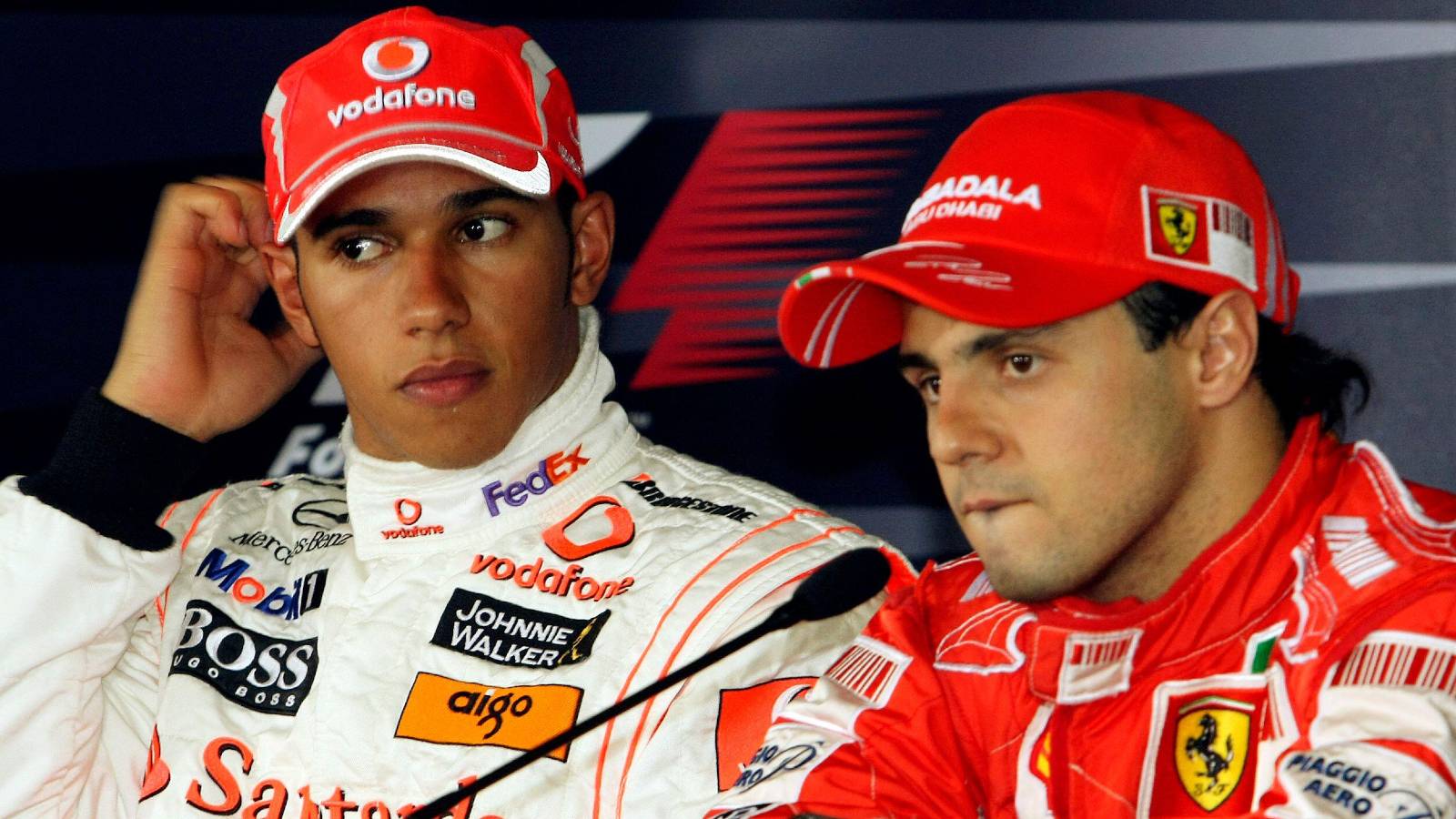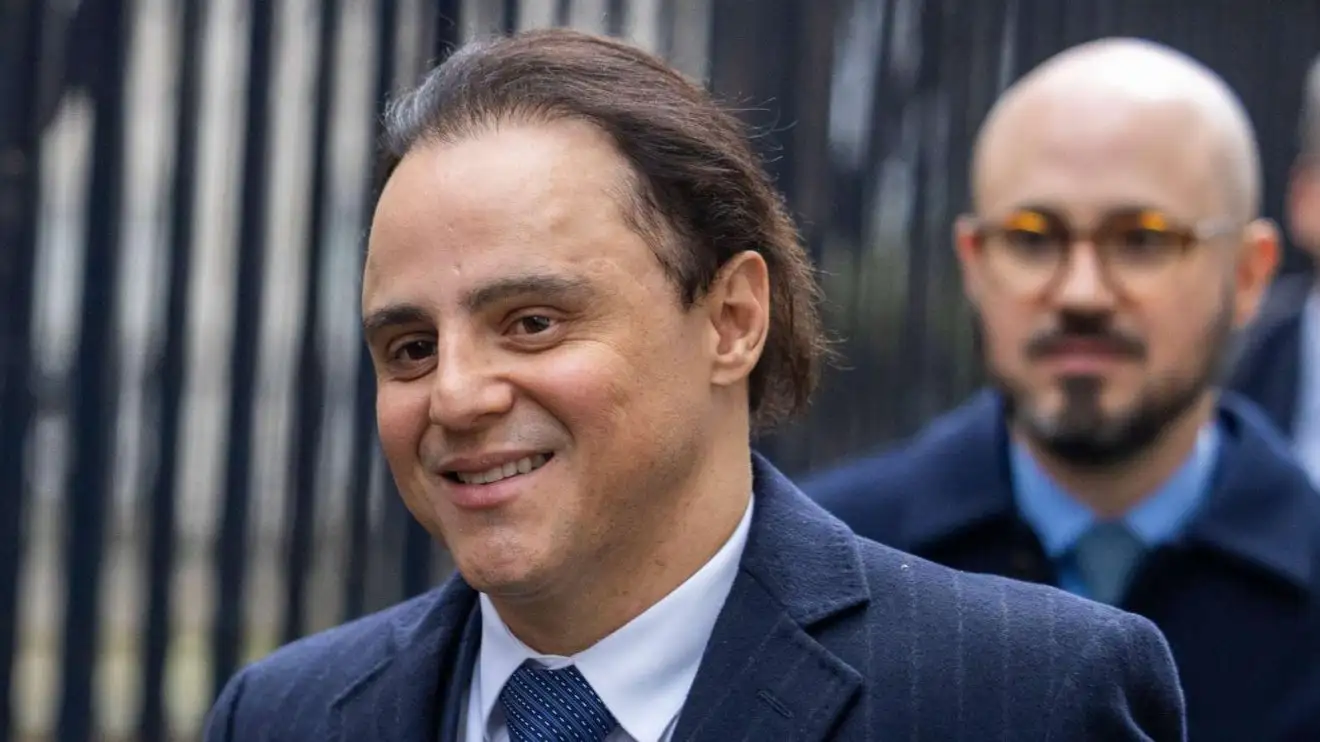The memory is burned into the minds of Formula 1 fans: Brazil, 2008. The final corner of the final lap. Felipe Massa, crossing the finish line in first place, the roar of his home crowd a deafening wave of celebration. For seven glorious, heart-stopping seconds, he was the Formula 1 World Champion, his father weeping tears of pride in the Ferrari garage.
Then, the impossible happened. Lewis Hamilton, struggling for grip in the rainy conditions, passed Timo Glock just yards from the line, securing the fifth-place finish he needed. The single point earned was enough. The title—Massa’s dream, Massa’s moment—was snatched away, stolen in the dying seconds of the season.
It was, for years, viewed as the cruelest twist of fate in F1 history, a dramatic, albeit devastating, sporting defeat. Yet, the narrative has shifted completely. A massive, sensational lawsuit now argues that the championship was not lost in Brazil due to bad luck or a brilliant overtake; it was, in fact, systematically stolen three months earlier in Singapore by a vast, deliberate, and concealed conspiracy that reached the highest echelons of the sport’s governing body.
Seventeen years later, Felipe Massa is back on the grid, not in a race car, but in London’s High Court. This time, he is racing for $85 million and, more importantly, for the truth.

The Grand Prix of Deception: Unraveling the Singapore ‘Crashgate’
To understand the magnitude of this legal challenge, one must revisit the inaugural Singapore Grand Prix on September 28, 2008. The Marina Bay Circuit, glowing under floodlights, was the setting for what seemed like a routine victory march for Massa, who was leading the race and aiming to extend his championship lead over Hamilton.
Then, on lap 14, chaos erupted. Nelson Piquet Jr., driving for Renault, crashed his car into the wall at Turn 17. The safety car was deployed, transforming the race. Piquet’s teammate, Fernando Alonso, had strategically pitted just moments before the crash. As the rest of the field scrambled to enter the pits under the yellow flags, Alonso cycled to the front of the field.
What happened next to Massa was a pit-stop catastrophe: the Ferrari crew released him while the fuel hose was still attached. It ripped away in a shower of sparks. Massa drove down the pit lane, dragging the heavy hose behind him in a visual metaphor for his unraveling title dreams. He was slapped with a drive-through penalty, dropping him to 13th place and a devastating zero points. Alonso won the race.
The incident was soon revealed to be no accident at all. In 2009, Piquet Jr., having been fired by Renault, came forward with the explosive truth: he had been explicitly ordered to crash by team principal Flavio Briatore and chief engineer Pat Symonds. The plan was ruthless: trigger the safety car at the perfect moment to gift Alonso the victory. The ensuing scandal, dubbed “Crashgate,” led to lifetime bans for Briatore and Symonds and the disqualification of the Renault team. Justice, it seemed, was served.
But a crucial piece of the puzzle was missing.
The Smoking Gun: A Former Supremo’s Revelation
Despite confirming the deliberate crash, the FIA refused to annul the Singapore Grand Prix results. They invoked the sacred F1 doctrine of “sporting finality”—championship results are final after the season-ending prizegiving ceremony. Lewis Hamilton was world champion, and the case, according to the governing body, was closed.
This legal firewall, however, was demolished in 2023 by the very architect of modern F1, former supremo Bernie Ecclestone. In a devastating admission caught on camera, Ecclestone confessed that he and then-FIA President Max Mosley knew about the deliberate crash during the 2008 season. They knew of the fraud, the conspiracy, and the intentional manipulation of the race result, yet they chose to bury the information.
Ecclestone’s explanation was simple and chilling: exposing the scandal mid-season would have been “too damaging for Formula 1’s image.” They prioritized the reputation of the sport over sporting integrity and justice. They allowed the championship to proceed, consciously letting a fraudulent result stand, directly impacting the final outcome. Massa, the man who lost the title by a single point, was utterly destroyed by the chaos caused by a deliberate incident the top officials had conspired to conceal.
If Singapore had been annulled, as Massa’s legal team argues it should have been under FIA regulations, he would have been crowned the 2008 World Champion. Ecclestone’s admission was not merely a revelation; it was the smoking gun that provided Massa’s lawyers with the crucial evidence of fraud and a cover-up, effectively negating the principle of finality the FIA had relied upon for 17 years.

The $85 Million Question: Finality vs. Justice
Massa’s lawsuit, filed in London, names the FIA, Formula 1 management, and Bernie Ecclestone himself as targets. The damages sought are a staggering $85 million. This astronomical figure is meticulously calculated: it represents lost earnings, sponsorship opportunities, and the massive career value gap between being a World Champion and a runner-up. Experts estimate the tangible loss to Massa due to being denied the title to be in the $82 million range.
But the lawsuit is about more than money. Massa’s legal team argues that the FIA breached its own fundamental regulations by failing to promptly investigate a serious incident they had knowledge of, claiming the governing bodies conspired to conceal the truth, directly and irreparably impacting Massa’s professional trajectory and the historical record.
The stakes could not be higher. If Massa wins, the consequences will be seismic, reverberating far beyond the world of F1. A victory would shatter the established principle of “sporting finality.” Every controversial result in motorsport history, every gray area decision, every scandal that emerged years after the fact, would suddenly become vulnerable to legal challenge. The foundations of sports governance would tremble.
The defendants have mounted a ferocious defense. Their core argument remains simple: the case is time-barred. The legal window to challenge the 2008 season closed years ago. Allowing this lawsuit to proceed, they contend, would set a “dangerous precedent” that could destabilize not just Formula 1, but the entire global landscape of organized sports.
In late 2025, a critical three-day hearing took place in London. The arguments were presented not on who should win the title, but on whether the lawsuit should even be permitted to proceed to a full trial. Massa’s lawyers argued that fraud and deliberate cover-up negate any time bar defense. The defendants insisted that finality must be upheld to preserve the integrity and historical record of the sport. The presiding judge has reserved judgment, leaving the fate of the 2008 championship, and perhaps F1’s own credibility, hanging in the balance.
Lewis Hamilton, who is not a defendant, now watches as his first world title hangs precariously in the legal scales. Should the court rule in Massa’s favor and order a full trial, years of internal FIA documents, communications, and depositions will be disclosed. The full, unvarnished truth about who knew what and when they knew it will finally emerge, dragging a dark and unsavory chapter of F1 history back into the unforgiving light.

The Rewriting of History: Three Possible Futures
The upcoming judgment presents three starkly different futures for Formula 1:
Scenario One: Finality Upheld. The judge dismisses the case as time-barred. Lewis Hamilton remains the 2008 World Champion, and Formula 1’s historical records remain untouched. The precedent stands: once the trophy is handed out, the result is permanent, regardless of subsequent revelations. Justice, in this outcome, is sacrificed for stability.
Scenario Two: A Championship Overturned. The case proceeds to trial. Years of discovery reveal an even deeper, darker conspiracy. A court, at the end of a long legal battle, orders the 2008 championship annulled, declaring Felipe Massa the rightful World Champion 17 years too late. This would be a victory for justice, but a catastrophic blow to the perceived stability of F1’s history.
Scenario Three: Corruption Exposed, No Title Change. The case proceeds, but Massa ultimately loses at trial. The court may rule that while the cover-up happened, the FIA’s decision not to annul the race was technically within their regulatory discretion. Massa gains no title or damages, but the trial itself exposes the full extent of the corruption at the top, leaving F1’s credibility in ruins.
The fundamental question before the court is profound: can a legal system truly overturn a 17-year-old sporting championship, or does the principle of finality matter more than a long-delayed truth? If Bernie Ecclestone and Max Mosley, the sport’s most powerful figures, truly knew about a criminal conspiracy during the season, who else was complicit?
The judge’s next decision will not simply determine Felipe Massa’s legacy; it will define whether Formula 1’s past is a fixed, immutable record, or if some secrets are simply too expensive—and too fraudulent—to remain buried forever. For the sake of sporting integrity, the world awaits to see if the past can, indeed, be rewritten.